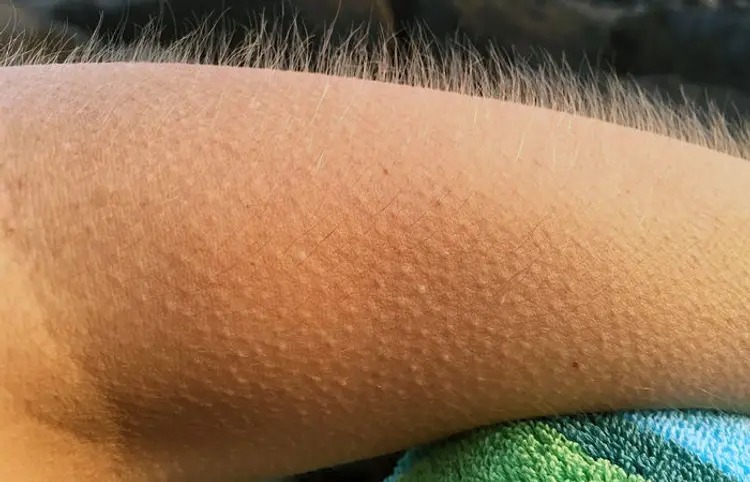
Goosebumps stand on end: When we go out in the winter season, our hair stands on end due to the chill of the cold wind. In such a situation, we wear warm clothes, take a blanket or drink hot tea to avoid cold. But have you ever tried to know what is the connection between cold and hair growth? So let us know today the scientific reason behind this.
Also called ‘turkeybump’ or ‘duckbump’
Hair fall is a physiological phenomenon that we have inherited from our animal ancestors, which was useful for them but not very useful for us. As the fur grows, the skin rises. It may also be called ‘turkeybump’ or ‘duckbump’. This skin bulges due to the contraction of small muscles attached to each hair. Each contracted muscle creates a type of shallow depression on the surface of the skin, causing the surrounding area to be raised. In such a situation, whenever the body feels cold, the surface of the skin shrinks and the hair also stands up. People also get goosebumps in emotional or scary situations.
sudden release of a stress hormone called adrenaline
However, this process is ineffective in humans because we do not have body hair like animals. As far as the scientific reason is concerned, it all happens due to the sudden release of the stress hormone called adrenaline. Adrenaline is released in two small bean-shaped glands located above the kidneys in humans. It not only causes contraction of the skin muscles but also affects other body reactions. This hormone is released in animals when the animal is cold or experiencing a stressful situation, preparing the animal for a flight or fight response. In humans, adrenaline is often released when we feel cold, when we are stressed, or when we experience intense emotions such as anger or excitement. Other symptoms of adrenaline release include tears, sweaty palms, hand tremors, increased blood pressure, increased heart rate, etc.
 look news india
look news india